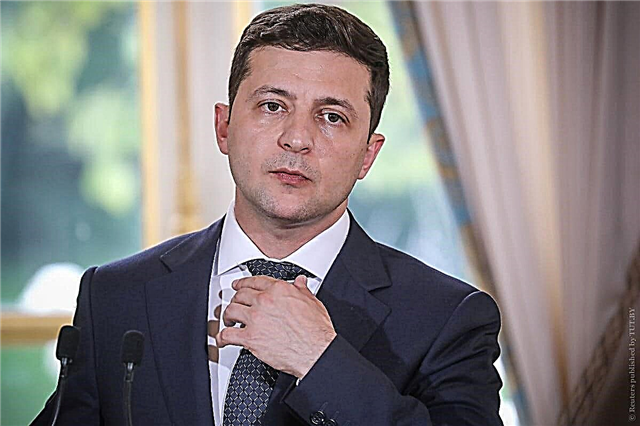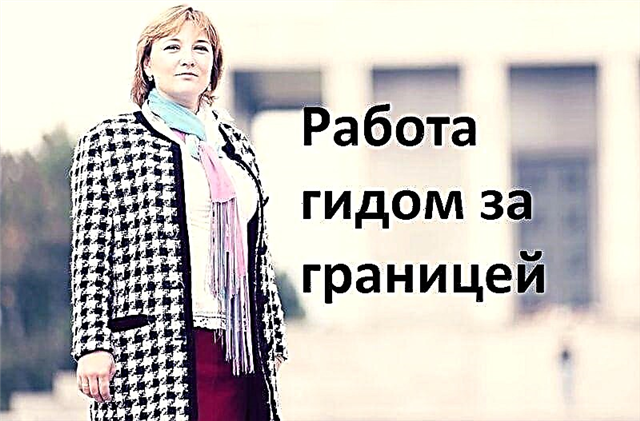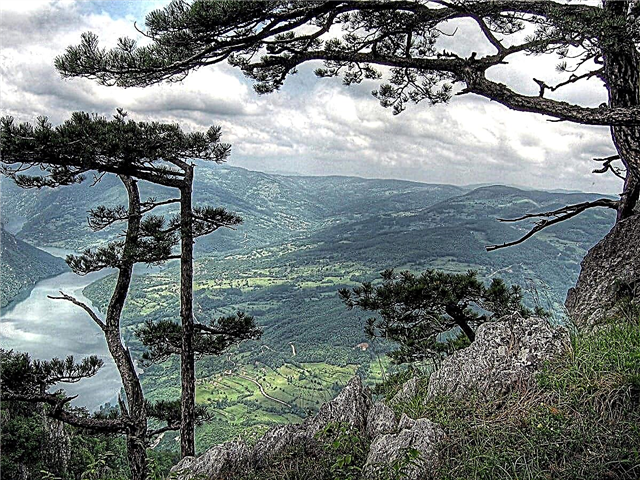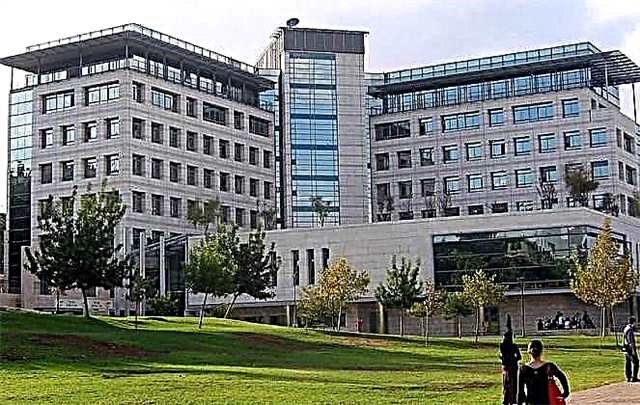The Israel Institute of Technology (Technion) is one of the leading universities in Israel. It occupies high positions in the world ranking and is known not only as an educational, but also as a scientific center. Considering opportunities for studying abroad, many immigrants from post-Soviet countries choose the Technion.

History and achievements of the university
The Israel Institute of Technology is one of the oldest public educational institutions in Israel and the best technology universities in the world. It was founded in Haifa in 1912.
The first building of the institute was located in the Adar region, but in the 50s of the twentieth century, the expanded training center was moved to the Neve Sheanan region, on the slopes of Mount Carmel.
Today, the campus covers more than 460 hectares of land and includes 90 buildings: educational buildings, research institutes, laboratories, support services and hostels. Much attention is paid to the development of a barrier-free environment for students and employees with disabilities.
The Technion in Haifa is a leading technical university in the world, which is famous not only for the high quality of teaching, but also for scientific activities. The faculties of mathematics, information technology, architecture and chemistry are especially famous.
Three Nobel Prize winners in chemistry teach at the university, including the discoverer of quasicrystals Dan Shekhtman (professor of the Department of Materials Science).
Notable alumni of the Technion include the Nobel laureate Arie Varshel, who studied models of complex chemical systems, the creator of the theory of quantum information Asher Perez and Gilmero Sapiro, one of the leading software developers for graphic designers Photoshop and AfterEffects.
No less impressive achievements at the Faculty of Economics and Management. According to statistics, about 70% of the founders and top managers of well-known Israeli companies are Technion graduates.
The university has 60 research institutes and centers. About 200 scientific institutions have partnerships with the Technion, including the newest Marine Research Center in Haifa.
Faculties and specialization
The Technion has 18 faculties, where 620 courses and programs can be studied. You can get a bachelor's degree in 50 specialties, a master's and doctoral degrees in 82 specialties. The institute has about 14,000 students.
Applicants can choose the following faculties of the Israel Institute of Technology:
- aerospace engineering,
- architecture and urban planning,
- biology,
- biomedical engineering,
- biotechnology and food engineering,
- chemical engineering,
- chemistry,
- civil and environmental engineering,
- computer science,
- education in science and technology,
- electrical engineering,
- industrial engineering and management,
- materials science and engineering,
- maths,
- engineering mechanics,
- medicine,
- physics,
- humanities and arts.
At each faculty, you can choose to study in several specialties. The programs cover various fields of science and technology, as well as areas that are at the intersection of a variety of scientific disciplines. It is one of the few technology universities in the world that studies medicine.
The Technion's Faculty of Architecture (Faculty of Civil Engineering) trains architects, landscape architects, urban planners and industrial designers, and conducts extensive academic research in the construction industry. Faculty graduates have extensive knowledge not only in the field of architecture, but also in the field of ecology, cultural studies and psychology.
The Faculty of Bioengineering of the Haifa Technion is known not only for scientific research, but also for practical work on the rehabilitation of wounded and injured soldiers.
Requirements for applicants
To enter the Technion, you need to have a complete secondary education received in Israel or in other countries. Secondary education certificates issued in the states of the former USSR are also recognized. An applicant can apply for admission if he is already 17 years old.

The teaching is in Hebrew, but some postgraduate programs are taught in English. Foreigners must have a level of proficiency in Hebrew and English of at least B2 and confirm this on a language exam.
Studying at the Technion attracts talented young people from Israel and other countries, so the competition among applicants is very high.
The first stage is a competition of documents. Based on the results of the examination of grades in school certificates and other additional data (participation in educational competitions or school scientific communities, availability of documents on the completion of language courses and other additional education), applicants who submitted applications are allowed or not allowed to take exams.
Exams for foreigners are divided into three groups:
- psychometric test;
- general exam in physics and mathematics or exams in other specialized subjects;
- language exams (Hebrew and English).
Upon admission to specialties related to architecture, a creative competition is held, and for medical candidates - an additional interview.
The psychometric test checks the level of logical thinking (40% of the total score), mathematical thinking (40%) and knowledge of the English language (20%). Each question offers 4 possible answers, from which you must choose the correct one. Testing can be done in Russian, the check of assignments is completely computerized.
The Technion has a preparatory department (mehina) for repatriates and foreign students. Preparatory programs are designed for six, eight or ten months. Students study Hebrew, mathematics, physics, chemistry and English. Successful completion of the “mechina” does not guarantee admission to a university, but it significantly increases the chances.
How to apply to the Technion
To find out how to enter an Israeli university, you should contact the official website of the educational institution, there is a version in English.
Applicants submit an application form and a package of documents to the university. It includes:
- high school diploma or diploma (translated into Hebrew and notarized);
- photocopy of your passport;
- two photographs 30x40 mm;
- Receipt of payment of the duty in the amount equivalent to USD 70.
Documents for the selected faculty of the educational institution are submitted from mid-January to the end of March (for admission to the fall semester) or from the beginning of November to January 31 (for the spring semester).
Tuition fees and scholarships
Training at the Technion is paid for both Israeli citizens and foreigners. Israelis pay tuition fees for both undergraduate and graduate programs on average $ 2,500 per year. For foreigners, prices are significantly higher: about $ 8,000 for undergraduate studies and $ 13,000 for graduate studies.
Studying at the “mekhina” is also paid - about $ 3,000 for an annual course.
Israeli citizens can receive material assistance from an educational institution (the so-called needs-based scholarship) if they have financial difficulties. To obtain it, you must submit an application, your passport details and identification number.
Perach Scholarships are awarded to students who participate in volunteer educational projects for children from low-income families for at least 4 hours a week. Payments are up to 50% of the cost of tuition fees at the university.
The Technion annually awards special prizes and grants to students who study in master's and doctoral studies, from the Ministry of Science, various foundations and donors of Israel and other countries.
How Technion students live
The institute has the largest dormitory complex in Israel (Technion city), which can accommodate up to 5,000 students. In addition, Kiryat Eliezer has a Kessel hostel for medical students.

The campus has a supermarket, cafe, post office, bank, synagogue, sports center, books and stationery store. In the student clinic, you can get not only medical assistance, but also consultations from a psychologist.
The hostels offer single and double rooms, as well as accommodation for married couples. Each multi-bed room or block has a kitchen, bathroom, furniture and internet. The right to check into a hostel in the Technion is primarily given to Mehina and first-year students.
Seniors and foreign students often rent apartments in the city. Renting a room costs $ 200-270 per month, for a one-room apartment, depending on the location, they ask for $ 370-490 per month.
Meals cost $ 200-400 per month.
In general, the student's expenses for living in Haifa during the period of study are $ 600-1100 per month.
Other famous universities in Israel
Israel's universities are renowned for innovative teaching programs and active student engagement in research. Some of the most famous universities in the country include:
- Hebrew University of Jerusalem,
- Tel Aviv University,
- Haifa University,
- University named after David Ben-Gurion (Beer-Sheva),
- University named after Moshe Bar-Ilana (Ramat Gan)
Conclusion
The Israeli Institute of Technology Technion is a large educational and scientific center where not only Israelis, but also citizens of other countries study and do research. A large number of faculties and educational programs allows you to choose a specialty to your liking.
The competition for admission to the Technion in Israel is very high, tuition is paid. But the university enjoys great and well-deserved popularity.











